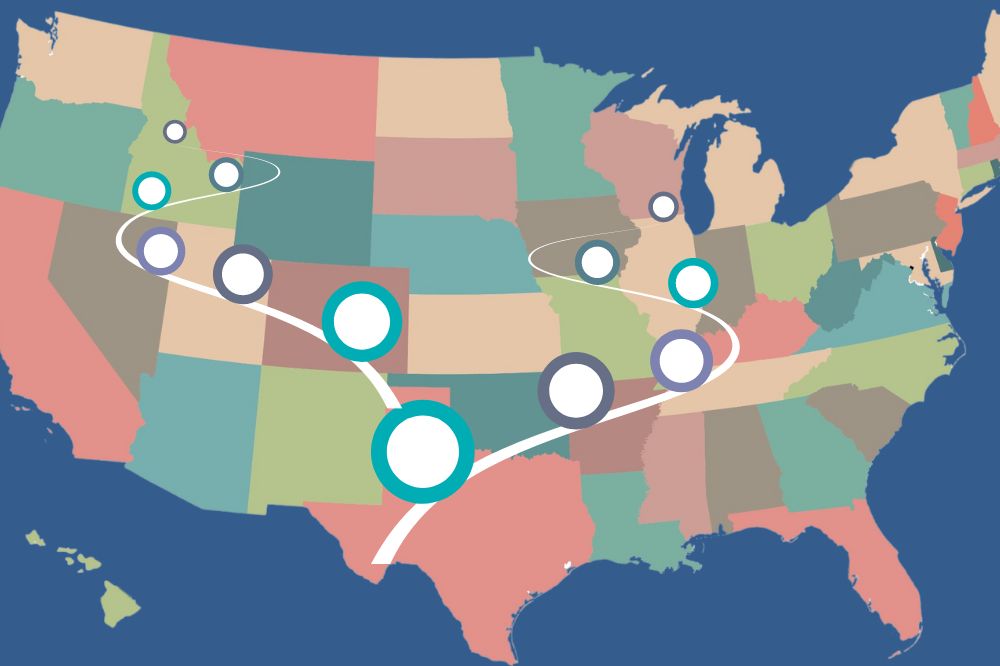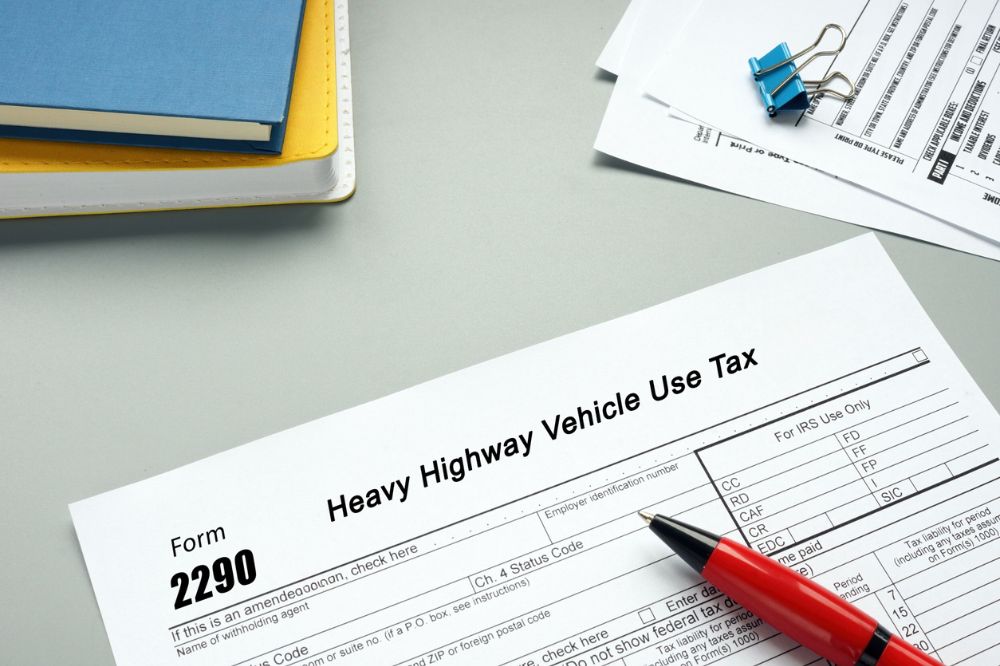
If you’re an owner-operator, you’ll know that having all the right licenses and documents is essential for smooth business operations. If you run an interstate trucking business, you’ll need to add MC authority to your list of documentation.
This is an important legal requirement, and it can help make your life a lot easier when operating interstate.
While almost all interstate carriers need MC authority, it’s essential to understand the different types of authority that exist and how to apply for the correct one. We cover everything you need to know about this in the guide below.
What is MC Authority?
MC Authority, or Motor Carrier Authority, is a crucial component for companies operating within the transportation industry, specifically those involved in interstate commerce.
It is a legal authorization granted by the Federal Motor Carrier Safety Administration (FMCSA), a division of the U.S. Department of Transportation (DOT), that permits businesses to transport goods or passengers across state lines for compensation.
This authorization is mandatory for any for-hire carrier engaging in interstate commerce, meaning that if a company wants to transport goods or passengers from one state to another, it must obtain an MC number.
Getting an MC authority involves registering with the FMCSA and meeting specific requirements, including having the right insurance coverage.
Once approved, you get a unique MC number, which your company uses to operate legally in interstate commerce.
As a trucking business, it’s easy to fall under the category that requires MC authority. If you ever cross state lines on delivery routes, then applying for MC authority is important.

Types of Authority
Motor carrier authority falls under three main categories. Here’s a breakdown of each type:
- Motor Carrier of Property (Except household goods): This authority lets companies transport general freight, like raw materials or finished products, but not household items. If you haul anything other than household goods for hire, you need this.
- Motor Carrier of Household Goods: This is for moving companies that transport household items like furniture or personal belongings across state lines. If you’re in the moving business, this is the authority you need.
- Specialized MC Authorities: These are for companies that transport specific goods that need special handling, like hazardous materials, passengers, or animals. For example, a company hauling chemicals needs HazMat authority, and a bus service needs Passenger Carrier authority.
Having the right authority is essential to operate legally, avoid penalties, and ensure your business runs smoothly.
Who Needs MC Trucking Authority (And Who is Exempt)
Quite simply, you need MC trucking authority if you transport goods or passengers for hire across state lines or within a state as part of interstate commerce.
If you’re a for-hire carrier moving freight like machinery, electronics, or other commercial goods, you need this authority.
However, some carriers are exempt. If you only haul exempt commodities like unprocessed agricultural products, and certain food items, or are strictly an intrastate carrier (operating only within one state), you might not need MC authority.
Private carriers hauling their own goods or nonprofit organizations transporting people might also be exempt.
If you operate a trucking business, then you need to make sure you have the right type of MC authority to operate legally. If you’re unsure, it’s best to check the specific regulations for your type of cargo and operations.

Steps for Getting MC Authority
Getting MC authority is a relatively straightforward process no matter what state you’re based in.
Step 1: Create a Business Entity
You’ll need to establish your business as a legal entity, such as an LLC or a corporation,to get granted MC authority.
A formal business structure is required to obtain your MC authority and ensure you comply with state and federal regulations.
Consult with a legal or business advisor to help you choose the right business structure for your trucking business.
Step 2: Apply for Your USDOT and MC Number
Once your business entity is set up, you can apply for a USDOT number through the FMCSA. This is the number used to track your company’s safety record and compliance with regulations.
Along with the USDOT number, you’ll need to apply for your MC number. Both numbers are critical for legally operating your trucking business.
Step 3: File BOC-3 Paperwork with a Legal Process Agent
After securing your USDOT and MC numbers, you’ll need to file a BOC-3 form. This form designates a legal process agent in each state where you operate.
The agent is responsible for receiving legal documents on your behalf, such as court notices or legal summons. Having a legal process agent is mandatory for all motor carriers and ensures that you’re properly represented in legal matters.
While it’s a legal requirement, it will also make your life running an interstate trucking business easier if any issues arise.
Step 4: File Your Unified Carrier Registration (UCR) Permit
The Unified Carrier Registration (UCR) system is a federal requirement for any carriers operating across state lines.
After you’ve filed your BOC-3, you’ll need to register under the UCR system. You need this registration to prove that you’re compliant with state regulations and that you’ve paid the required fees for operating in multiple states.
Failure to register can result in penalties and fines, so it’s important to complete this step as soon as you can.

Step 5: Pay the Heavy Vehicle Use Tax (HVUT)
If your vehicle has a gross weight of 55,000 pounds or more, you’re required to pay the Heavy Vehicle Use Tax (HVUT) to the IRS. This annual tax helps fund highway maintenance and construction.
Paying the HVUT is a legal obligation, and failure to do so can result in significant fines. File your payment on time each year to avoid penalties and to keep your operations running smoothly.
Step 6: Register for the International Registration Plan (IRP)
The International Registration Plan (IRP) allows you to register your vehicle for operation in multiple states and Canadian provinces with a single registration.
This plan is essential for interstate travel, as it ensures your vehicle is legally registered in all the regions where you plan to operate.
The IRP also helps distribute registration fees based on the distance traveled in each jurisdiction, simplifying the process for carriers operating across borders.
Step 7: Set Up an International Fuel Tax Agreement (IFTA) Account
To streamline fuel tax reporting, set up an account under the International Fuel Tax Agreement (IFTA). This agreement simplifies how you report and pay fuel taxes for vehicles operating in multiple states.
With an IFTA account, you’ll file a single quarterly tax report instead of dealing with multiple fuel tax forms. This saves you plenty of time and helps ensure you remain compliant with fuel tax regulations across all the different jurisdictions you operate.
Step 8: Enroll in a Drug and Alcohol Testing Program
If you have drivers operating under your authority, it’s mandatory to enroll in a DOT-compliant drug and alcohol testing program.
This program ensures that all drivers are regularly tested, helping to maintain safety on the road.
The DOT requires pre-employment, random, post-accident, and return-to-duty testing for all drivers. Enrolling in a reputable program is important to staying compliant with federal regulations and promoting a safe driving environment.
Benefits Of Having Trucking Authority
Having your own trucking authority offers some clear benefits, giving you full control over your business operations.
With trucking authority, you can choose your own loads, set your own rates, and negotiate directly with shippers. All of this can lead to higher profits.
You’re not dependent on a third party to find work for you, which means more flexibility and independence in how you run your business.
Holding your own authority can also open doors to more opportunities for growth, allowing you to expand your fleet, take on larger contracts, and establish long-term relationships with clients. This is important for a more stable and prosperous business in the long run.
Conclusion
When operating a trucking business across state lines, there are several essential considerations to keep in mind. One of the most critical is obtaining MC authority, as operating without it could lead to serious consequences.
If you’re busy planning your trucking business, then the right documentation may be essential, but the first and most important step is acquiring the right vehicle. Get in touch with us at Mission Financial Services to discover the easiest way to access commercial truck funding.


